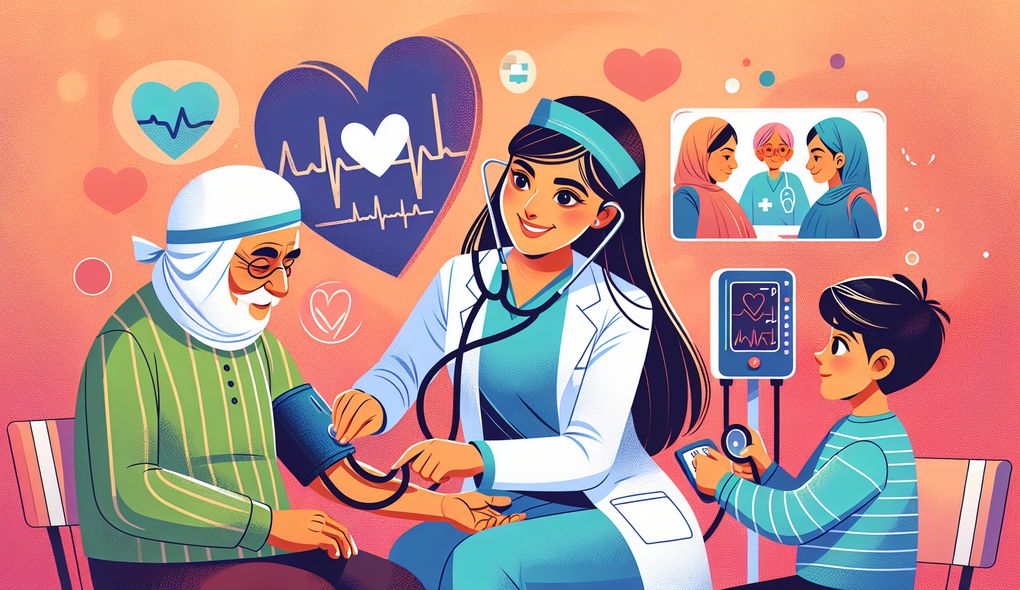How do you handle ethical dilemmas in patient care?
SENIOR LEVEL

Sample answer to the question:
When faced with ethical dilemmas in patient care, I always prioritize the well-being and best interests of the patient. I believe in open and honest communication with patients and their families, ensuring they have all the information they need to make informed decisions about their care. I also consult with my colleagues and healthcare team to seek different perspectives and gather additional information. In situations where there may be conflicting values or beliefs, I strive to find common ground and respect the patient's autonomy. Ultimately, my goal is to provide compassionate and patient-centered care while upholding the highest ethical standards.
Here is a more solid answer:
When facing ethical dilemmas in patient care, I rely on a systematic approach to ensure the best outcome for the patient. Firstly, I thoroughly assess the situation and gather all the relevant information, keeping in mind factors such as the patient's preferences, values, and cultural background. I consult with my healthcare team, including physicians and social workers, to discuss different perspectives and seek guidance. I also stay up-to-date with ethical guidelines and professional standards to inform my decision-making process. Communication is vital in such situations, and I make sure to explain the different options available to the patient, along with the potential risks and benefits. I actively listen to their concerns and address any questions they may have. If there is still uncertainty or disagreement, I involve the patient's family members or the hospital ethics committee for further guidance. Throughout the process, I strive to provide patient-centered care, focusing on the individual's unique needs and preferences while upholding ethical principles.
Why is this a more solid answer?
The solid answer expands on the candidate's approach by providing more specific details about their systematic approach to ethical decision-making. It demonstrates their ability to gather information, consult with the healthcare team, stay informed about guidelines, and involve other stakeholders when necessary. The answer also emphasizes effective communication, active listening, and patient-centered care. However, it could benefit from concrete examples or personal experiences that highlight the candidate's successful handling of ethical dilemmas.
An example of a exceptional answer:
In my experience as a Family Nurse Practitioner, I have encountered several ethical dilemmas in patient care. One particular case stands out, where a terminally ill patient expressed a strong desire to discontinue life-sustaining treatment. While maintaining utmost respect for the patient's autonomy, I faced challenges in balancing their wishes with my duty to provide appropriate care. To navigate this complex situation, I engaged in extensive discussions with the patient, their family, and the healthcare team, including the attending physician and social worker. We explored various alternatives, such as palliative care and advanced directives, while ensuring complete transparency about the potential consequences of each option. Ultimately, we reached a consensus that supported the patient's desire for comfort and dignity. This experience taught me the importance of empathy, active listening, and collaborative decision-making in ethically challenging situations. I strive to bring these qualities to every encounter, ensuring that the patient's values and best interests are at the forefront of their care.
Why is this an exceptional answer?
The exceptional answer provides a vivid example from the candidate's personal experience to demonstrate their ability to handle ethical dilemmas in patient care. It showcases their skills in empathetic communication, active listening, collaboration with the healthcare team and patient's family, and ultimately finding a solution that respects the patient's autonomy and values. The answer effectively highlights the candidate's strengths and experiences in handling complex ethical situations, illustrating their ability to prioritize the patient's well-being while upholding ethical principles.
How to prepare for this question:
- Familiarize yourself with ethical guidelines and principles relevant to patient care.
- Reflect on your past experiences and think of specific examples where you faced ethical dilemmas and how you handled them.
- Consider different ethical frameworks and approaches to decision-making, such as autonomy, beneficence, and non-maleficence.
- Practice active listening and effective communication skills.
- Review case studies or scenarios involving ethical dilemmas in patient care and think through your approach to resolving them.
- Demonstrate your ability to collaborate and seek guidance from the healthcare team when faced with challenging ethical dilemmas.
What are interviewers evaluating with this question?
- Ethical decision-making
- Communication
- Collaboration
- Patient-centered care

